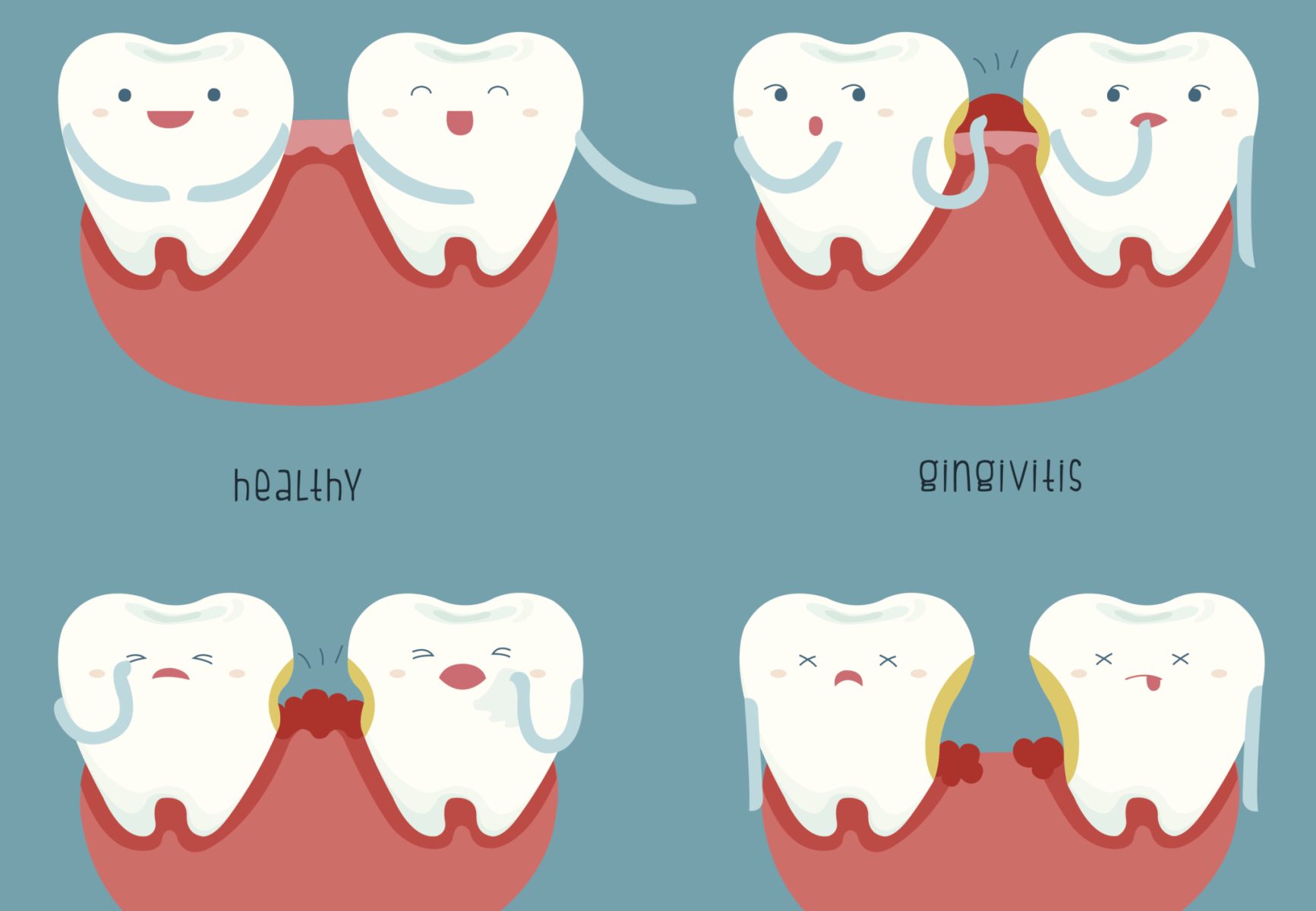Periodontal disease, commonly known as gum disease, is a progressive condition that affects the tissues supporting the teeth. It begins with mild inflammation of the gums (gingivitis) and, if left untreated, can advance to more severe stages, leading to significant damage to the gums, bone, and ultimately tooth loss. Here’s how periodontal disease progresses through its stages:
1. Stage 1: Gingivitis
- Gingivitis is the earliest stage of gum disease and is characterized by red, swollen gums that may bleed easily during brushing or flossing. Plaque buildup along the gumline, caused by poor oral hygiene, leads to bacterial growth and inflammation. At this stage, the damage is reversible with professional dental cleanings and improved oral care at home.
2. Stage 2: Early Periodontitis
- Without intervention, gingivitis can progress to early periodontitis. In this stage, the inflammation spreads deeper into the gum tissue and starts to affect the bone supporting the teeth. Gums may begin to recede, forming pockets between the teeth and gums where bacteria accumulate. This can lead to persistent bad breath, tooth sensitivity, and mild to moderate bone loss.
3. Stage 3: Moderate Periodontitis
- As periodontitis advances, the supporting bone and fibers that hold teeth in place continue to be destroyed. Gums recede further, and pockets deepen, allowing more bacteria to thrive. Teeth may become loose or shift in position. Moderate periodontitis requires more aggressive treatment, including scaling and root planing (deep cleaning) to remove plaque and tartar buildup beneath the gumline.
4. Stage 4: Advanced Periodontitis
- In the most severe stage of periodontal disease, advanced periodontitis, significant bone loss occurs around the teeth. Pockets deepen further, and teeth may loosen or become mobile. Severe infection and inflammation can affect overall health, increasing the risk of systemic conditions such as heart disease and diabetes. Advanced periodontitis often requires surgical intervention, such as flap surgery or bone grafts, to restore gum and bone support around the teeth.
Prevention and Treatment:
- Regular dental check-ups, professional cleanings, and good oral hygiene practices are crucial for preventing periodontal disease. Early detection and treatment are key to managing and halting its progression. Maintaining a healthy diet, avoiding tobacco use, and managing systemic health conditions also contribute to gum disease prevention.
Understanding the stages of periodontal disease highlights the importance of early intervention and proactive oral care in preserving gum and overall dental health. By addressing symptoms promptly and following recommended dental care routines, individuals can reduce the risk of developing severe periodontal issues and maintain a healthy smile for years to come.
If you have questions or would like to learn more, give us a call or make an appointment today with Dr. Schnall at 212-247-7059 or visit our website at www.philipschnalldmd.com.
Dr. Philip Schnall proudly serves Central Park West and all surrounding areas.
